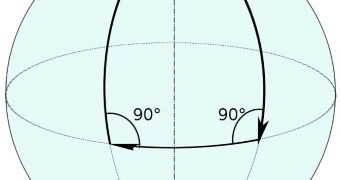According to the results of a new investigation carried out by scientists at the University of Chicago, it would appear that preschool kids who hear their parents use words such as tall, tiny, little and big tend to exhibit improved spatial abilities, when compared to their peers.
Spatial skills are essential during later education, when the children go on to study science, mathematics and technology, investigators say. The young ones fare a lot better if they also begin to use such words to describe the size and shape of objects in their daily conversations.
In addition, researchers found a positive correlation between the number of words used to describe objects and the scores the children using them got on dedicated tests. Being able to understand space and its properties is essential for grappling and understanding complex, abstract ideas.
Physicists and engineers, for example, use spatial skills to understand a concept, and then transform it into a real-world process. Oftentimes, this is done initially inside their heads, and only then in real-life.
In their new research, the UC scientists set up an experiment where children aged 1 through 4 were made to hear 45 words related to spatial orientation. After they spoke the words themselves, the kids were asked to take part on a non-verbal spatial thinking assessment.
Experts determined that subjects in the test group achieved spatial skill scores about 23 percent higher than those of their peers who took the tests without hearing or practicing the words. This study therefore suggests a simple way of improving kids' performances in an unobtrusive manner.
“Our results suggest that children's talk about space early in development is a significant predictor of their later spatial thinking,” explains Susan Levine, the UC psychologist who authored the new paper detailing the findings.
The work appears in the current issue of the renowned journal Developmental Science. UC colleague Janellen Huttenlocher and Florida International University expert Shannon Pruden were also a part of the team.
“In view of findings that show spatial thinking is an important predictor of STEM achievement and careers, it is important to explore the kinds of early inputs that are related to the development of thinking in this domain,” the authors explain.
The investigation was carried out on 52 children and 52 parents selected from the Chicago area. The participants were selected from economically- and ethnically-diverse background, to ensure randomness.
Funding for the study came from the US National Science Foundation's Science of Learning Centers Program and the National Institute of Child Health and Human Development.

 14 DAY TRIAL //
14 DAY TRIAL //